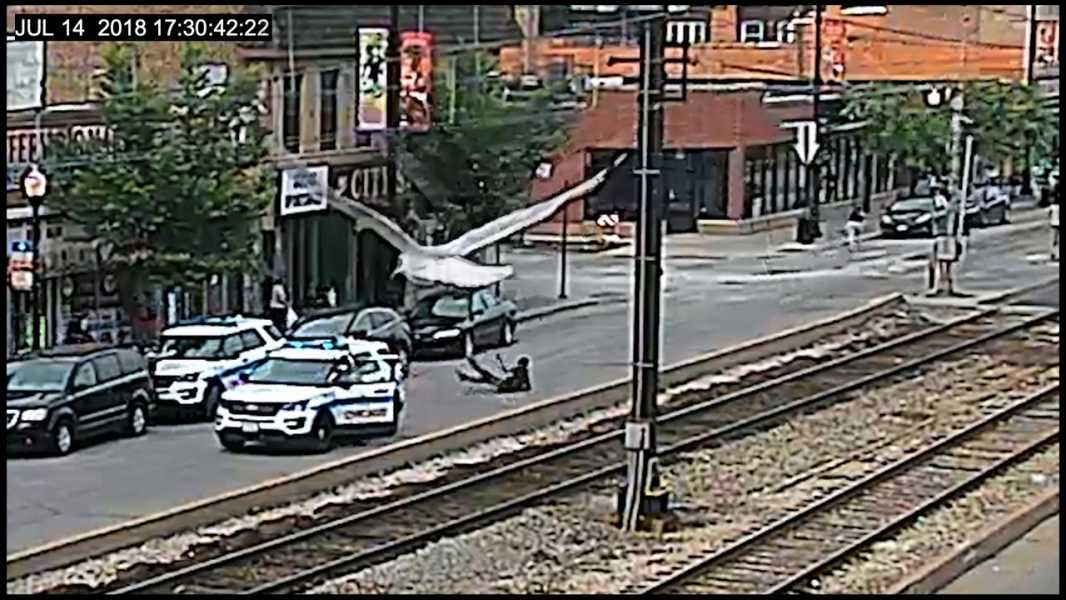
Save this storySave this storySave this storySave this story
Watch “Incident.”
The opening of Bill Morrison’s short film “Incident” is silent. Security footage shows a section of a Chicago street on what looks to be an ordinary summer afternoon. A few people walk down the sidewalk, a seagull flies past the camera, a police cruiser idles on the corner. Suddenly the view changes and the sound comes on. The effect is jarring, and the new scene is one that has become all too familiar: police officers have shot and killed a Black civilian.
Harith (Snoop) Augustus had left work at the barbershop down the street when he was shot by a Chicago police officer. Morrison’s documentary captures the final moments of his life, and the actions and reactions of the police and neighbors who were there when it happened. Using police body-cam footage to create a multifaceted record of the shooting, along with simple onscreen text to place the shooting in its local political context, the film is a powerful record of one man’s death and of the ongoing crisis of police violence.
The New Yorker Documentary
View the latest or submit your own film.

The shooting in “Incident” is closely tied to an earlier, more famous police shooting in Chicago. In 2014, Officer Jason Van Dyke killed seventeen-year-old Laquan McDonald. A journalist sued to get access to body-cam footage, which unravelled Van Dyke’s claim that he had acted in self-defense. A striking, troubling element of “Incident” comes when we see the police officers immediately begin to describe the shooting to one another—in an account that contradicts what we see on tape. For Bill Morrison, this is at the crux of the film: “With the public’s access to this footage established, a shift in police behavior happens. The cops are all performing now. They know that they’re on camera and that it’s going to be reviewed, and they are creating a narrative to vindicate their actions.”
After the film was completed, in December, 2023, the City of Chicago reached a new collective-bargaining agreement with the Fraternal Order of Police. A provision of the contract, ratified by the Chicago City Council, allows officers to turn off body cameras during conversations that follow an incident, and to delete post-incident conversations that are recorded.
Sourse: newyorker.com






